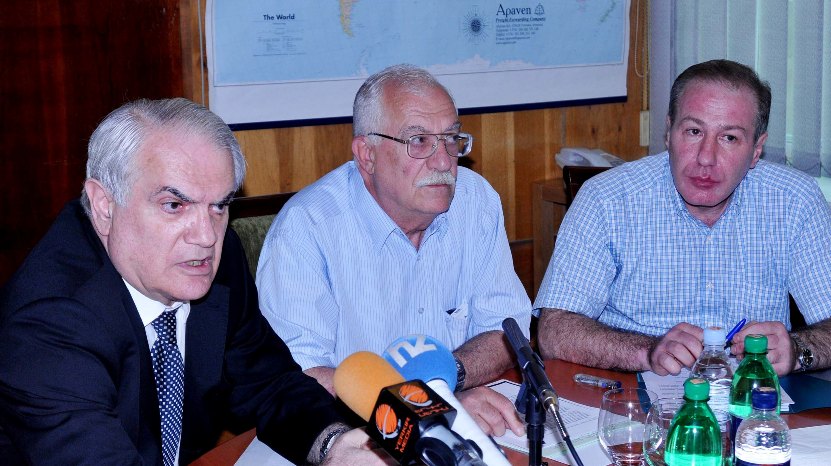 MINISTRY OF ENERGY INFRASTRUCTURES AND NATURAL RESOURCES OF THE REPUBLIC OF ARMENIA
MINISTRY OF ENERGY INFRASTRUCTURES AND NATURAL RESOURCES OF THE REPUBLIC OF ARMENIA

On June 9, the preliminary report regarding to the "Nairit" future operational, technical and financial viability submitted by the World Bank was discussed at the "Nairit Plant" CJSC industrial and technical council.
As it is known, the RA government had applied to the World Bank with the request of assessing the viability of the plant.
The WB has carried out a financial audit with the participation of specialists of the "Jacobs Consultancy" company, the preliminary conclusion of which has already been submitted to the RA Government and plant's management.
The members of "Nairit"’s industrial and technical council, as well as the representatives of the Administration council and the Ministry have participated in the discussion of the World Bank's report.
The Director of "Nairit Plant" CJSC Ruben Saghatelyan presented the World Bank's report of the plant future operation to the participants of the discussion, where was indicated, that the plant has not worked since 2010, and its private owner has abandoned it.

Currently, the plant’s obligations exceed the 121 billion drams / 250 million US dollars/, which includes the existing loan of CIS Interstate Bank.
In that time, the plant has not received any revenue and had relied on loans of the Yerevan TPP for the payment of salaries and maintenance expenses.
The total debt to Yerevan TPP amounts to 23 billion drams /48 million US dollars/.
Furthermore, the accumulation of creditor debts is continuing up to date.
World Bank's specialists have note in the conclusion, that if the situation is not been solved, the "plant" will remain as a heavy burden for the state electrical energy companies, with an annual rate of around 3 billion drams for the payment of salaries and plant maintenance.
There is indicated in the World Bank's report that the reopening of the plant will require about 210-346 million of US dollars.
It is also mentioned, that the estimated cost of supplies of "Nairit" exceeds the predicted price of polychloroprene rubber, which makes the plant less competitive.
The World Bank auditors have examined and concluded, that in the cases of both butadiene or acetylene-based production processes "Nairit" would have the highest production costs in the international market.
The World Bank experts have also pointed out the significant depreciation of the tangible part of fixed assets of the plant.
In addition, according to the World Bank’s auditors, the making of "Nairit" financially sustainable will require unrealistic cuts of the expenses or rising in the price of the polychloroprene rubber.
As a result of the last, the "Nairit" will not be able to compete in the European, Asian and other markets due to the high production cost and distance from markets.
According to the World Bank’s experts’ assessment, the capital investments made for the launch project of Nairit, will be purchased during the 30-35 years / due to the low returns /, which is not attractive for investors.
The "Nairit" cannot be competitive, so the operation of the plant is not feasible economically.
However, the World Bank’s experts shared their opinion and conclusion, but the decision-maker of "Nairit"’s destiny, nevertheless, is the RA government.